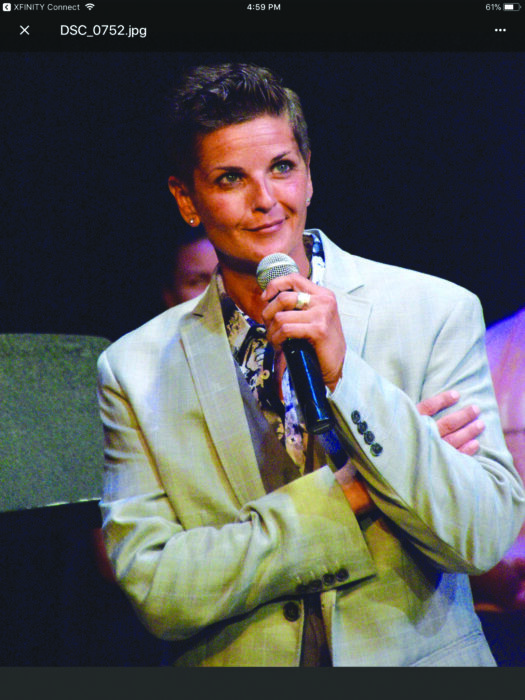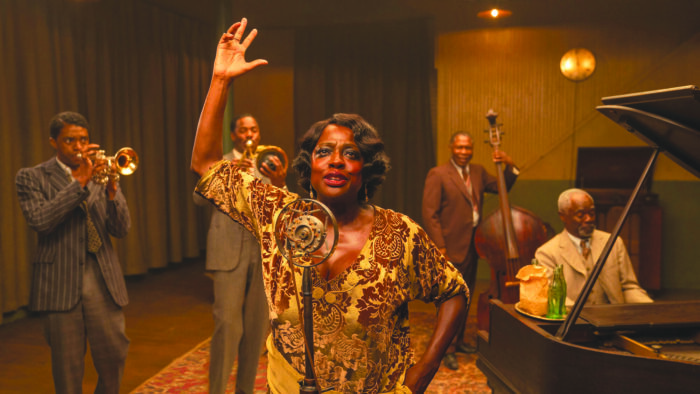| Covid-19 update | As of December 21 | As of December 28 |
|---|---|---|
| Total cases statewide | 37,388 | 41,670 |
| Total current infections statewide | 6,688 | 5,508 |
| Total deaths statewide | 656 | 715 |
| New cases | 5,513 (Dec. 15 to Dec. 21) | 4,282 (Dec. 22 to Dec. 28) |
| Current infections: Hillsborough County | 2,290 | 1,908 |
| Current infections: Merrimack County | 929 | 609 |
| Current infections: Rockingham County | 1,580 | 1,264 |
Covid-19 news
During a Dec. 22 press conference, state epidemiologist Dr. Benjamin Chan reported that New Hampshire had seen an average of 750 to 800 new infections of Covid-19 per day over the last week, numbers that were slightly down from the week before. While the test positivity rate has remained stable, at 9.1 percent as of Dec. 22, the number of hospitalizations has been up, he said. Dr. Beth Daly, Chief of the Bureau of Infectious Disease Control of the New Hampshire Department of Health & Human Services, also provided an update on vaccine distributions in the state. Over the previous weekend the Moderna vaccine received emergency use authorization and it is now approved for people ages 18 and older. “We received 24,200 doses of Moderna vaccine … here in New Hampshire,” Daly said during the Dec. 22 press conference. “About half … will be distributed to our hospitals … and about half are going to be used to launch our state-run fixed vaccination sites, as well as our mobile teams.” According to a press release from the Governor’s Office, 13 sites across the state — most locally in Concord, Hooksett, Londonderry and Nashua — were set to open Dec. 29 to vaccinate first responders and high-risk ambulatory care providers. It’s part of Phase 1A of the state’s vaccination plan, which includes approximately 110,000 people and is expected to be completed by mid-January. Over the next few weeks, Daly said, state health officials expect to receive approximately 9,000 doses each of the Pfizer and Moderna vaccines, with the exact number subject to change by the week.
On Dec. 23, Gov. Chris Sununu issued Emergency Order No. 77, an order amending Emergency Order No. 37, which had been issued back on April 28 to temporarily halt the hiring of all full-time and part-time employees of the state’s executive branch for positions that are already vacant or will become vacant during the state of emergency, with a few exceptions, including employees in roles related to combating the pandemic and those working in child protective services. Emergency Order No. 77 adds that all full-time and part-time employee positions may be posted for internal and external applicants, provided they certify in writing that projected federal funds used to pay for the position can support it through the end of State Fiscal Year 2023, or however long the contract period lasts.
Drive-in House session
On Dec. 28, acting New Hampshire House of Representatives Speaker Sherman Packard sent a letter with details of the upcoming Jan. 6 House session to state representatives. According to a press release, the event will be conducted as a drive-in, with all representatives and staff staying in their own vehicles, spread apart across the largest parking lot on the UNH campus in Durham. The New Hampshire Supreme Court has said remote sessions are constitutional, but the House has not yet adopted a rule that allows it to meet remotely, which means it is obligated to meet in person, according to the letter. “Additionally … the anticipated cost in establishing a secure voting mechanism would be in excess of $300,000,” the letter reads. “In the absence of a rule which permits remote participation, such an expense cannot be justified at the present time, nor is it possible to resolve the significant logistical requirements of a remote session given the short timeframe and the unique challenges of the 400-member House.” On Dec. 29, Democratic House members held a press conference in response to the announcement of a drive-in legislative session, and Deputy Democratic Leader Representative David Cote released a statement saying that “This is the New Hampshire Republican Party saying that they are unable to do what the government has required individuals and businesses to do since the pandemic began … by working remotely to protect public health,” and that the plan does not account for Representatives who can’t drive or sit in their car for hours.
Supreme Court case
New Hampshire has filed a reply brief in the United States Supreme Court in response to Massachusetts’ position that the court should not hear New Hampshire’s case against Massachusetts for taxing New Hampshire residents who work remotely for Massachusetts companies, according to a press release from the Office of the Governor. “Massachusetts’ current position is a far cry from our country’s rallying call of ‘no taxation without representation,’ — which they seem to have forgotten originated in their state,” Gov. Chris Sununu said in a statement. The reply brief argues that Massachusetts is downplaying the seriousness of New Hampshire’s claim in that it contends that the Tax Rule does not impede any tax policy New Hampshire desires to implement, that the Tax Rule maintains the status quo because Massachusetts continues to impose an income tax on nonresidents solely for Massachusetts-sourced income, and that the Tax Rule addresses a temporary problem, according to the release.
Members of the Buntin Rumford Webster Chapter Daughters of the American Revolution gathered at the Old Fort Cemetery in East Concord on Dec. 19 to lay wreaths as part of the annual National Wreaths Across America Day, according to a press release.
It’s time to order from the 2021 State Forest Nursery seedling catalog, which is now available at nh.gov/nhnursery. According to a press release, the New Hampshire Division of Forests and Lands is expecting an increased demand this year and encourages anyone who wants to plant trees or shrubs in the spring to place orders now. All seedlings are grown onsite at the nursery, located on 16 acres of land in Boscawen.
The 27 men and women from Manchester who died as a result of experiencing homelessness in the past year were remembered during a virtual vigil held by Catholic Medical Center’s Health Care for the Homeless during Homeless Persons’ Memorial Day on Dec. 21, according to a press release.
A new primary care practice has opened in Nashua that will focus on “unhurried and patient-focused health care” for all ages and will help alleviate southern New Hampshire’s shortage of primary care providers, according to a press release. The Altrix Primary Care staff is made up of board-certified nurse practitioners who will offer a full range of primary care services.






